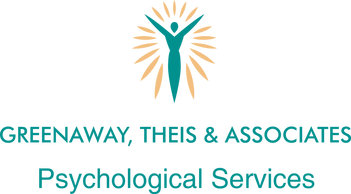- Home
-
Our Approaches
- Acceptance & Commitment Therapy (ACT)
- Attachment Informed Therapy
- Claristery
- Cognitive Behavioral Therapy (CBT)
- Couples Therapy
- Emotionally Focused Therapy (EFT)
- Eye Movement Desensitization (EMDR) and Reprocessing (EMDR)
- Family Therapy
- Hypnosis
- Internal Family Systems (IFS)
- Person-Centered Therapy
- Polyvagal-Informed Therapy
- Psychosynthesis
- What We Help With
- What We Offer
- Our Team
- FAQ
- Resources
- Contact Us
What is Cognitive and Behavioral Therapy?
Cognitive Behavioral Therapy (CBT) is a structured approach to therapy that emphasizes the present, rather than focusing on the past. CBT embraces the idea that we often have negative evaluative thoughts about ourselves that are mostly automatic. When these automatic thoughts go unnoticed and unchallenged, they affect our mood and behavior, reinforce self-defeating coping patterns, and stand between us and our goals.
When can it be helpful?
Cognitive Behavioural Therapy can be helpful for a number of presenting concerns including depression, anxiety, substance use disorders, ADHD, eating disorders and more.
What does it involve?
CBT includes identifying automatic thoughts, underlying beliefs, and core beliefs. Then, alternative perspectives and thoughts that are more realistic and helpful in moving you toward your goals are identified. Finally, obstacles are anticipated and addressed through problem-solving techniques and skills training.
CBT sessions follow a structured format – including collaboratively setting the agenda, discussing the issues, translating them into action plans, and agreeing on ways to apply skills between sessions.
CBT sessions follow a structured format – including collaboratively setting the agenda, discussing the issues, translating them into action plans, and agreeing on ways to apply skills between sessions.
How can I get started with CBT?
If you are interested in CBT to support your journey, you can reach out to book a free consultation with any of the therapists listed below.
Team Members that offer CBT
Dr. Greenaway
|
Natalia
|
Our Company |
Contact Information |
© 2017 Greenaway, Theis & Associates | Site Map
Site powered by Weebly. Managed by FreeLogoServices.com
Site powered by Weebly. Managed by FreeLogoServices.com
- Home
-
Our Approaches
- Acceptance & Commitment Therapy (ACT)
- Attachment Informed Therapy
- Claristery
- Cognitive Behavioral Therapy (CBT)
- Couples Therapy
- Emotionally Focused Therapy (EFT)
- Eye Movement Desensitization (EMDR) and Reprocessing (EMDR)
- Family Therapy
- Hypnosis
- Internal Family Systems (IFS)
- Person-Centered Therapy
- Polyvagal-Informed Therapy
- Psychosynthesis
- What We Help With
- What We Offer
- Our Team
- FAQ
- Resources
- Contact Us



